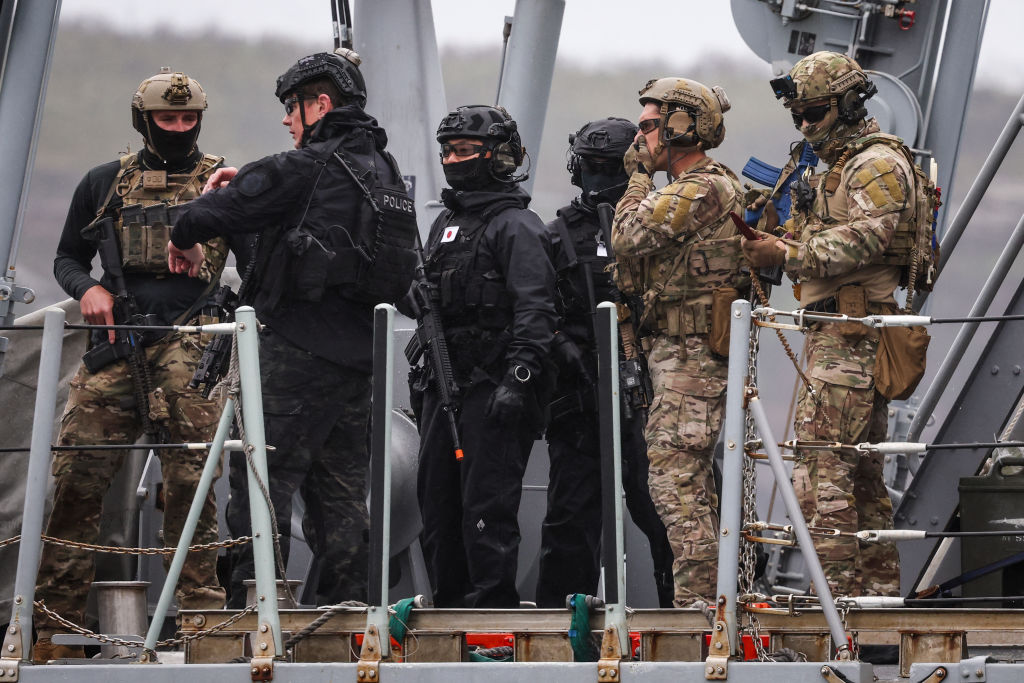
The United States’ hegemony is under threat. The diffusion of wealth, power, technology, and knowledge has led to a shift in the balance of power in the international system. There was a belief that the international system would include many great powers; instead, the current landscape comprises two superpowers alongside several great and regional states. However, the United States can maintain its standing in this new system by showing its commitment to defending the global system it has created.
For the last three decades, the United States has been the world’s sole superpower. During that same time, China has attained remarkable growth in its economy. Based on purchasing power parity, the Chinese economy surpassed the U.S. economy in size in 2014. In 2023, China’s GDP reached $17.79 trillion, marking its closest proximity to the United States in terms of economic prosperity. According to official figures, China’s military budget in 2023 was 231.36 billion, but in reality, its military spending is on par with the U.S. military budget – about 700 billion dollars.
With the United States and China as superpowers, a tier of major powers in the international system is led by Russia, India, and Brazil (though the European Union and several other regional players, like Iran and Turkey, could be considered in this group as well). The accumulation of wealth and power by these states has resulted in increased pressure on the United States’ global geostrategic centers located on the Eurasian continent. China, as a superpower, seeks a Sino-centric global order. Russia is incompatible with America’s liberal order and insists on designated spheres of influence (as manifested in its war against Ukraine).
Where Washington’s Focus Should Be
The United States has three geostrategic centers: Southeast Asia, Europe, and the Middle East. The primary U.S. geostrategic concern is in Southeast Asia, where China’s influence is expanding rapidly. Recent messages from the Chinese government suggest that it regards the seas extending to the island of Guam as its area of strategic interest.
The threat of using force against Taiwan and systematic drills simulating a blockade of the island raise the question of the United States’ readiness to defend Taiwan. President Joe Biden answered this issue affirmatively, but the future government must back up its words with military modernization and troop deployment in the area. A significant signal to deter China would be the beginning of a thorough modernization of the American armed forces and an increase in the military budget, which should occur alongside the building of regional military and political partnerships.
In Europe, the United States must reestablish strategic discipline among its allies. NATO and EU member states must end their flirtations with China and Russia. China has attempted to extend its influence on the United States’ weaker allies in Europe through investments, and the United States should take that into consideration. Regarding Russia, the United States must prevent it from reaching its goals in Ukraine. If Russia succeeds, it will continue pressuring U.S. allies in Central and Eastern Europe, eroding U.S. influence there.
In the Middle East, the United States’ third geostrategic center, Washington needs to ensure that Arab nations will provide assistance in case of a prospective clash with China. The main adversary of America and its allies in the Middle East is Iran and its proxy forces. However, Iran is the weakest member of the anti-American alliance. Therefore, the American strategy should concentrate on coercing Iran, which entails compelling Tehran to cease funding terrorist organizations and developing nuclear weapons.
The issues in these three geostrategic centers are intertwined. Containing China is a crucial objective for American hegemony; compelling Iran to change its ways and defeating Russia in Ukraine will serve as the most significant deterrent to China. Of course, the growth of American military capabilities and the building of alliances are important factors. But the realization of all this depends on one intangible factor: the will of the American people to fight to preserve the free system they have created through the U.S. global hegemony.
Personnel from the Defence Forces of Australia, Japan, South Korea and the United States, plus officers from the Australian Federal Police and New South Wales Police Force, participate in a boarding exercise as part of training activities for Exercise Pacific Protector 2024, at Sydney Harbour in Sydney on Sept. 26, 2024 (Photo by DAVID GRAY/AFP via Getty Images) Stock photo via Getty Images





